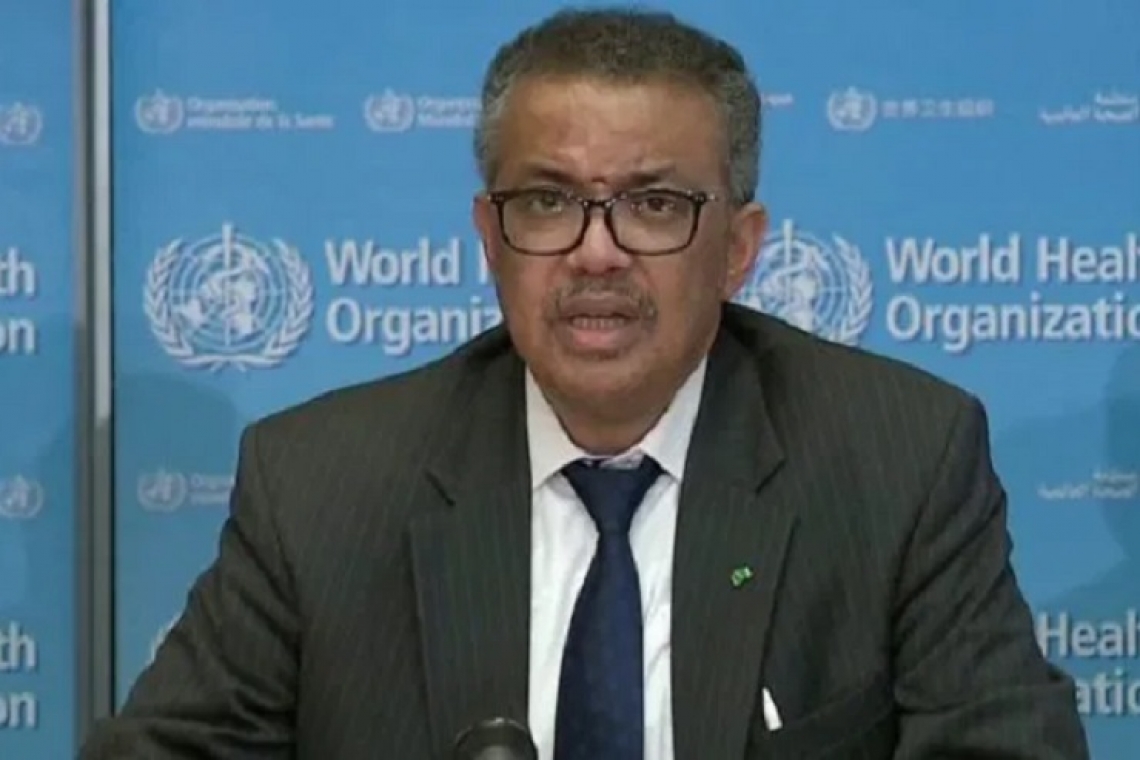WHO Director-General Dr. Tedros Adhanom Ghebreyesus.
WASHINGTON, DC--The World Health Organization (WHO) has advised against the planned transition out of the stay-at-home restrictions in some countries, warning that lifting restrictions too quickly could lead to a deadly resurgence of COVID-19, which has claimed more than 116,000 lives worldwide so far.
“The way down can be as dangerous as the way up if not managed properly,” WHO Director-General Dr. Tedros Adhanom Ghebreyesus said in a virtual media briefing.
He said the WHO is working with affected countries on strategies for steadily and safely easing restrictions.
The WHO boss outlined several factors that must be taken into consideration: “… that transmission is controlled; sufficient public health and medical services are available; that outbreak risks in special settings like long-term care facilities are minimised; that preventive measures are in place in workplaces, schools and other places where it’s essential for people to go; that importation risks can be managed; and that communities are fully aware and engaged in the transition.”
The Director-General also drew attention to the fact that there have been more reports of infection among health workers.
This, he noted, makes it more important that health workers can access the masks, gloves, gowns and other personal protective equipment (PPE) to do their jobs safely and effectively.
Dr. Ghebreyesus said the WHO and the World Food Programme will be organising a new initiative – United Nations Supply Chain Task Force – that coordinates and increases the purchasing and distribution of PPE, lab diagnostics and oxygen to the countries that need it most.
This process will involve hubs in Belgium, China, Ethiopia, Ghana, Malaysia, Panama, South Africa and the United Arab Emirates.
“We estimate this supply chain may need to cover more than 30 per cent of the world’s needs in the acute phase of the pandemic.
“Every month, we will need to ship at least 100 million medical masks and gloves; up to 25 million N95 respirators, gowns and face-shields; up to 2.5 million diagnostic tests; and large quantities of oxygen concentrators and other equipment for clinical care,” Dr. Ghebreyesus added. The Director-General called on donors to support the initiative as the costs are estimated at US $280 million to store and move the supplies, with the price for acquiring supplies being much greater.
There are more than 1.8 million people who have tested positive for COVID-19 globally. ~ Caribbean360 ~







